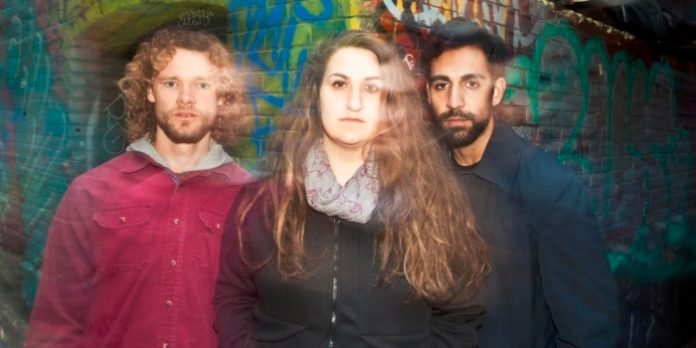Fresh off his double win for outstanding original script and outstanding original script by an emerging playwright at this year’s Jessie Awards, James Gordon King isn’t resting on any laurels. His newest play, Movements No. 1&2, opens in just a week’s time.
Talking to Vancouver Presents by phone a day after Vancouver’s professional theatre awards were handed out, his wins are still sinking in.
“I am really stunned actually, especially for outstanding original script. I was definitely not expecting to pick up that one,” he says. “When they called my name, I was in complete disbelief and it took all of my energy just to get through my speech and get off stage.”
While honoured and excited by the recognition, King admits that the accolades are not why he writes.
“It is very personal thing for me to make theatre,” he says. “It is something I do without any expectations in return. Will it inspire me to write more? Not necessarily, but it will hopefully lead to more opportunities.”
As a playwright on the rise King’s prospects look good, for now though any opportunities are the ones he and Marie Farsi are making together with their independent theatre company, Babelle Theatre.
This is the same company that produced Rivulets: 3 Short Plays About a Flood last year in Vancouver, and for which King won his Jessie for outstanding original script. It was also the play that took him to the Samuel French Off Off Broadway Short Play Festival in 2015. Perhaps a foretelling of his most recent recognition, Rivulets was chosen as one of six to be published by Samuel French, one of the world’s largest play publishers.
Continuing their company’s mandate to “produce experimental and ambitious theatrical performance work”, Movements No. 1&2 takes a number of cues from Rivulets, including its non-traditional venue. This time it is an old storefront in East Vancouver, a location that spoke to King and Farsi when they found it.
“We didn’t know where we were going to do it before we saw this space,” says King. “It is perfect for an insurrection against the state.”
The insurrection King refers to helps define the show’s major theme, an exploration of political and other social movements, and how these types of protests are often criticized for not having an end game.
“Very simply it’s about two people who try to start a political movement, some sort of revolution, and they try not to get lost in the creation,” explains King. “Some have criticized movements like Idle No More and Occupy because they have no concrete aims. This piece asks why not having any concrete outcomes should be the responsibility of a movement. Movements in their purest forms are an idealism, a dream. It doesn’t matter how we get there, it starts with that dream.”
King has also been fascinated by the counterculture of the 1950s and 1960s, and sees this period as a time when people believed they were onto something unprecedented.

“Especially on the west coast, in San Francisco,” he says. “They were the dreamers and artists who believed they were on the verge of a golden era, and over the years there has been a lot of disillusionment as to what happened.”
Through Movements No. 1&2, King is looking to explore the decline of the dreams of fifty years ago and what it means to have reached a new era of cynicism.
“What does it mean to let one’s ego die, and resurrect one’s self as a new person, a person of spirit or self,” he says.
And while it might all sound a little esoteric, King and Farsi both insist that there is a narrative in the show, even as some of it remains unscripted. “This play leans much more on the energy of the actors,” says King.
“The acting style for the show is not going to feel like theatre; the actors are very much themselves,” says Farsi. “It is a process of trust. We all have to trust Jim because we didn’t quite know what we were getting into, and we all have to trust each other as we work on developing the show.”
Part of the creative process has been in the realization that Movements No. 1&2 is very much a product of the people involved. Both insist that the only way in which the show could be produced in the future is if they were part of any subsequent productions.
“This is a show that we would like to produce again, but we’re not sure what kind of form it would take,” says King. “It is a really rich show and it could take on a lot of different forms, but I wouldn’t let anyone else produce it without our involvement.”
“The show that Jim has written really only works in this space with the people we have in the space,” adds Farsi. “It is beyond just writing a play, it is a creation.”
Movements No. 1&2 plays at 1326 E Georgia St, Vancouver from July 6-16. Tickets are available on Brown Paper Tickets.

